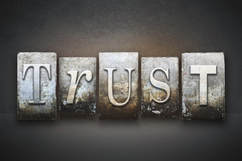 The following is a guest post by Rebecca Hopkins, an American writer, wife to a relief pilot, member of a cross cultural team, and mama to three kids—while living in beautiful, friendly Indonesia. “We have this whole sky to ourselves.” My husband, Brad, wasn’t exaggerating. He was flying a small Cessna 185 float plane in the central Borneo jungle, landing on winding rivers, dodging canoes and gold miners. On that day, he was the only pilot out there, answering medical evacuation calls from remote Indonesian villages, carrying passengers in just one hour to save them a journey that would take hours, even days on rivers and jungle roads. “It’s pretty cool where a float plane will take you, isn’t it?” he said. We know, however, that this magic of connecting communities to important resources happens because that one float plane is just one part of a team. That team includes the flight followers in the office, the airstrip agents in the villages that weigh passengers, the donors in other countries, our headquarters that does so much, and other pilots and staff members who’ve invested many years into this work. And for our team to be successful in this high-stakes job of relief aviation, we need trust. Trust should be built, not assumed Sometimes trust is assumed, based on a shared foundation of beliefs, goals and purpose. That’s a good start. But having a growth mindset with trust—that it’s built, not only assumed—creates both a stronger trust and gives a way to deal with broken trust. “Team leaders and members will often want their teams to quickly pour their trust into their latest idea or plan,” writes “The Teaming Church” author Robert C. Crosby. “But it is something that is built and added to with every task accomplished, every promise kept and every concern addressed.” Younger generations less likely to trust This need to build trust seems more urgent now than ever. A 2014 Pew Center survey shows that younger generations are less likely to trust than their older counterparts. To this question: “Generally, speaking, would you say that most people can be trusted or that you can’t be too careful in dealing with people,” 19 percent of Millennials chose trust. Thirty-one percent of Gen Xers were willing to trust, compared to 40 percent of Boomers. Advice on building trust That caution to trust can provide an opportunity to utilize good building blocks of trust. Accountability, vulnerability, forgiveness, grace, open dialogue and prayer are all important, according to Erik Plantenga in a blog post titled “The Trust Factor in Multicultural Teams.” David Sedlacek in Christianity Today’s “Teams in Missions: Are they worth It?” lists questions teams can ask each other: Mission – Why are we a team? Goals – What will we do? Roles – What do my teammates and I do? Communication – How do we relate to each other? Decision-Making – How do we make decisions? Conflict – How do we handle conflict?” Another simple one that both leaders and staff members can ask before they act: Is this (policy, decision, etc.) building trust or breaking down trust? Different cultures, genders and generations require different trust-building blocks But the answers themselves aren’t always straightforward and take team discussion to recognize different needs. “Cultural differences play a key role in the creation of trust, since trust is built in different ways, and means different things around the world,” write Ira Asherman, John W. Bing, Ed. D and Lionel Laroche, Ph.D., P.E. for global consulting firm ITAP international in their article, “Building Trust Across Cultural Boundaries.” When trust is broken “In our 20-plus years of research, we’ve discovered that 90 percent of the behaviors that break trust are unintentional and subtle,” write Dennis and Michelle Reina, co-founders of Reina, A Trust-Building Consultancy that has worked for companies like Johnson & Johnson, the U.S. Army and Harvard. “We’ve seen that these trust-breaking behaviors occur on a daily basis and are committed by everyone, at every level of responsibility, and within every form of professional relationship. While people know they need trust in their workplaces, most still aren’t sure how to restore trust once it’s been lost.” In a Christian organizational context, offering forgiveness might be a response to broken trust. While this is an important piece of moving away from bitterness, it doesn’t, alone, rebuild trust. The Reinas list such steps as “Observe and acknowledge what happened.” “Allow feelings to surface.” “Get and give support.” “Take responsibility,” in addition to forgiveness, and finally, “letting go and moving on” armed with deeper knowledge and growth resulting from the incident. Vulnerable situations require built trust A 2007 Pew report supports that “people who feel vulnerable or disadvantaged, for whatever reason, tend to find it riskier to trust because they’re less well-fortified to deal with the consequences of misplaced trust.” Organizations can look at times when its members or users are feeling vulnerable to make sure the policies in place build trust. How are transitions handled? How are health concerns dealt with? How are times of changing leadership addressed in a trust-building fashion? Some of Brad’s passengers could easily fall into the category of “vulnerable or disadvantaged” as they’re strapped to a stretcher, or step into that plane carrying a sick child. They’re entering both a float plane…and trust that has been built over time, through intentional decisions by lots of people. And in many cases, lives are saved. I think you could say, it’s pretty cool where trust—and not just float planes—can take you.
1 Comment
|
AuthorDr. Jolene Erlacher is a wife, mommy, author, speaker, college instructor and coffee drinker who is passionate about empowering the next generation of leaders for effective service! Archives
May 2024
Categories
All
|

 RSS Feed
RSS Feed